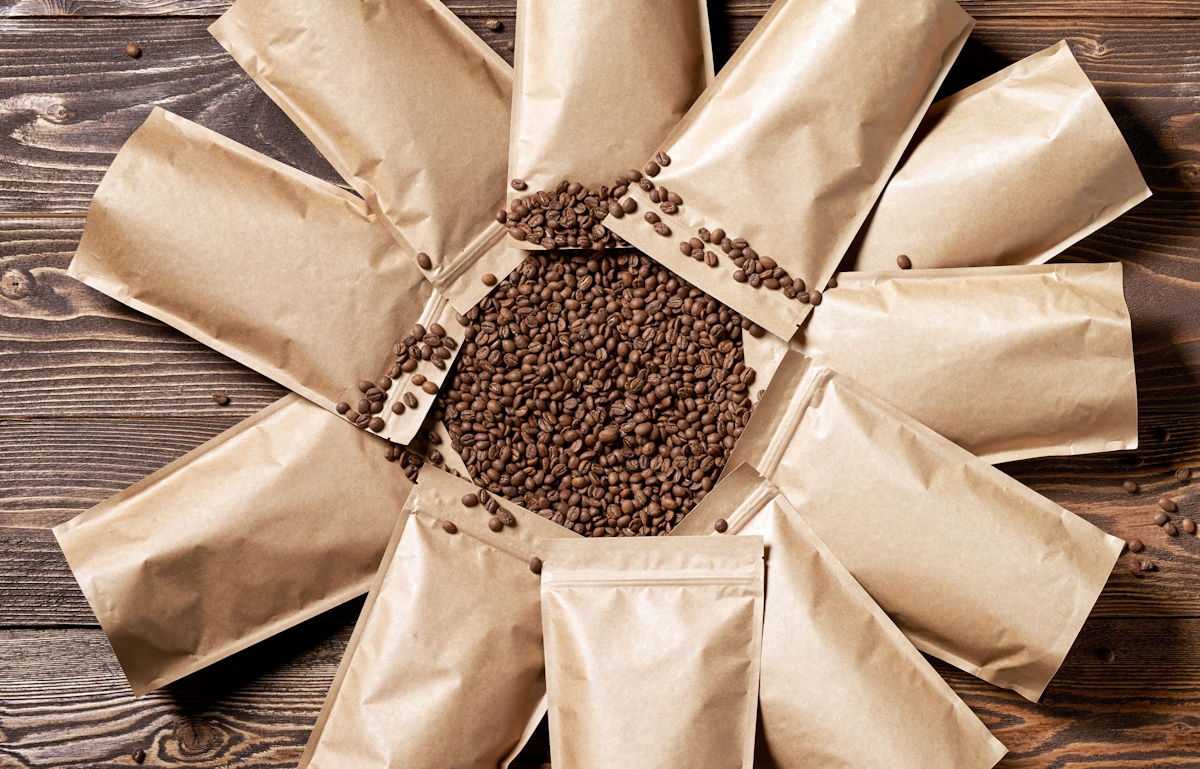Nothing throws off your morning routine like a cup of coffee that tastes off. Whether it hits your tongue sharp and sour or it leaves a lingering bitterness, it can throw off the entire experience. If you’ve ever wondered why your perfect-looking brew tastes a little too harsh or flat, you’re not the only one. Bad-tasting coffee isn’t always about the quality of beans. Sometimes it comes down to how you brew it.
The good news is, taste issues usually have a clear cause. A few adjustments to your method can change everything. Knowing what makes coffee too bitter or sour doesn’t require becoming a full-time barista. It’s mostly about understanding the balance between variables like water temperature, grind size, and brewing time. Once you get a grip on these basics, your cup can go from frustrating to satisfying in no time.
Common Causes Of Bitter Coffee
Bitterness in coffee is a common concern, especially for home brewers who find themselves making small tweaks that don’t seem to lead to any better results. While dark roasts naturally carry a more pronounced bitter note, poor brewing habits can take that edge too far.
Here are a few typical things that make coffee taste too bitter:
– Over-extraction: This happens when the water stays in contact with the coffee grounds for too long. As a result, the brew pulls out compounds that lean more on the bitter side.
– Too much coffee: A strong brew isn’t always better. Using more grounds than necessary tips the balance, creating an overwhelming taste.
– Finely ground beans: Grinding the coffee too fine, especially for methods like French press or pour-over, can cause the hot water to overwork the coffee, squeezing out bitter flavors.
– Overheated water: Water close to boiling, or already boiling, can scorch the grounds and make the coffee bitter before it even extracts properly.
A common example would be someone using the same brewing method with different roasts without adjusting the grind or water temperature. Maybe you’re using a dark roast in your pour-over but keeping the same grind size you used for a lighter roast. That setup might result in a bitter cup because the longer extraction time brings out more of the dark, roasted elements too intensely.
If your coffee has started tasting more like burnt toast than your favorite local café’s brew, check these factors first. Often, a small change like adjusting your brewing time by 15 to 20 seconds can make a noticeable difference.
Common Causes Of Sour Coffee
While bitterness can be unpleasant, sourness in coffee usually feels even more shocking. A sour taste may come off as tangy or even mouth-puckering. It’s a sign that the coffee didn’t extract enough flavor—kind of like taking a bite out of an under-ripe fruit.
Here are a few culprits behind that sour taste:
– Under-extraction: When hot water passes through the grounds too quickly, it doesn’t pull the rich flavors out fully. What’s left are the acidic compounds that hit your mouth first.
– Too little coffee: Using too little in your brew often results in weak extraction, leading to a sharp, sour finish.
– Coarse grind: A grind that’s too loose for your brewing method lets water zip through without enough contact time.
– Low water temperature: Cold or lukewarm water doesn’t activate the full chemistry needed to extract balanced flavors.
Imagine pulling a quick espresso shot where the water zips through the puck in under 10 seconds due to a bad tamp or a chunky grind. That shot will likely taste sour, not because the beans are bad, but because there wasn’t enough time to let complex flavors develop.
If you’ve been getting sharp, sour coffee more mornings than you’d like, rechecking the grind size and temperature settings on your setup could go a long way. The key is drawing out the full profile of the coffee, not just the acidic parts that show up first.
How To Fix Bitter Or Sour Coffee
Once you’ve figured out whether your coffee is too bitter or too sour, the next step is making small changes to improve the taste. A few tweaks can make all the difference. The great thing is, it doesn’t matter what method you’re using—drip, pour-over, French press, or espresso—these adjustments apply to all of them with just a little variation.
Start by checking your grind size. Every brewing method needs a different grind. If your coffee’s too bitter, you might be grinding too fine. That slows down the water and can lead to over-extraction. On the other hand, if it’s sour, your grind might be too coarse, not allowing enough contact time. For example, espresso uses a fine grind, while French press works better with a coarse one.
Pay attention to brew time, too. If your water is sitting with the grounds for too long, bitterness will build. If it moves through too fast, you’ll get sour notes. Try timing your brew from the moment water touches the coffee to the last drop. Here’s a basic starting point:
– Pour-over: 2.5 to 4 minutes
– French press: About 4 minutes
– Espresso: 25 to 30 seconds
– Drip coffee makers: 4 to 6 minutes depending on machine and quantity
Next, the coffee-to-water ratio matters more than most realize. Too many grounds and you’ll end up with a bitter brew. Not enough and it’ll come out weak and sour. Start with about 1 to 2 tablespoons of ground coffee per 6 ounces of water and adjust based on taste.
Finally, always check your water temperature. Coffee brews best with water between 195°F and 205°F. Boiling water will burn the grounds, giving you bitter notes, especially in lighter roasts. Water that’s not hot enough might cause under-extraction, leading to sour flavors. If you don’t have a thermometer, let your boiled water sit for 30 seconds before pouring.
These small adjustments often work better when tested one at a time. That way, you know exactly which change made things better. Once you find your sweet spot, your coffee will taste a lot closer to what you’d expect from a skilled barista.
Choosing The Right Beans For Better Flavor
The equipment and method you use matter, but even the best brewing habits can fall flat without good beans. The freshness, origin, and roast level of your coffee all shape the taste in big ways. If your coffee doesn’t taste right no matter what you do with your brewing setup, the beans themselves might be the issue.
Freshness comes first. Coffee beans start to lose flavor a few days after roasting, and most grocery store coffee has already been on shelves for weeks. That staleness shows up in the cup as either dull, flat flavor or strange bitterness that no brewing adjustment can fix. To get the best possible flavor, look for a roast date on the packaging and aim to use your beans within 2 to 4 weeks.
How you store them matters, too. Air, light, heat, and moisture can all mess with coffee flavor. Keep your beans in a cool, dry spot, away from direct sunlight. Use an airtight container, preferably opaque, and avoid keeping beans in the freezer if you open the bag often. That can introduce moisture and mess things up over time.
It’s also important to explore different roasts and origins. For example:
– Light roasts highlight brighter, fruitier flavors but can taste sour if under-brewed.
– Medium roasts strike a balance with a fuller body and rounded flavor.
– Dark roasts lean toward bold and smoky, but can easily taste bitter if over-extracted.
Sometimes you might just need a better match for your taste buds. Someone who enjoys soft, sweet flavors might go for beans from Ethiopia or Honduras. Fans of chocolatey, rich brews might prefer beans from Brazil or Colombia.
Experimenting with a few different beans can help you find your go-to coffee. Once you land on one that fits your preferences and brew style, those bitter or sour surprises become a lot less common.
Bringing Perfect Coffee to Your Doorstep
Great-tasting coffee is part science, part habit. When your cup doesn’t taste the way you want, it’s usually a sign that something small needs adjusting. Whether it’s your water temperature, how fine you’re grinding your beans, or how fresh they are, getting those parts right goes a long way in making your coffee taste just right.
Lafayette coffee drinkers already know the difference a fresh, flavorful brew can make, and with a few changes to your brewing process, that difference becomes something you can count on every morning. Whether you’re brewing at home or filling up a travel mug for the day, the right tweaks make each cup more enjoyable.
Looking to enhance your coffee experience with consistently high-quality brews? Jet Coffee makes enjoying top-notch coffee a breeze. Enjoy rich, flavorful sips every day with our convenient specialty coffee delivery right to your Lafayette doorstep. Whether you’re relaxing at home or heading out, we bring incredible coffee straight to you.



